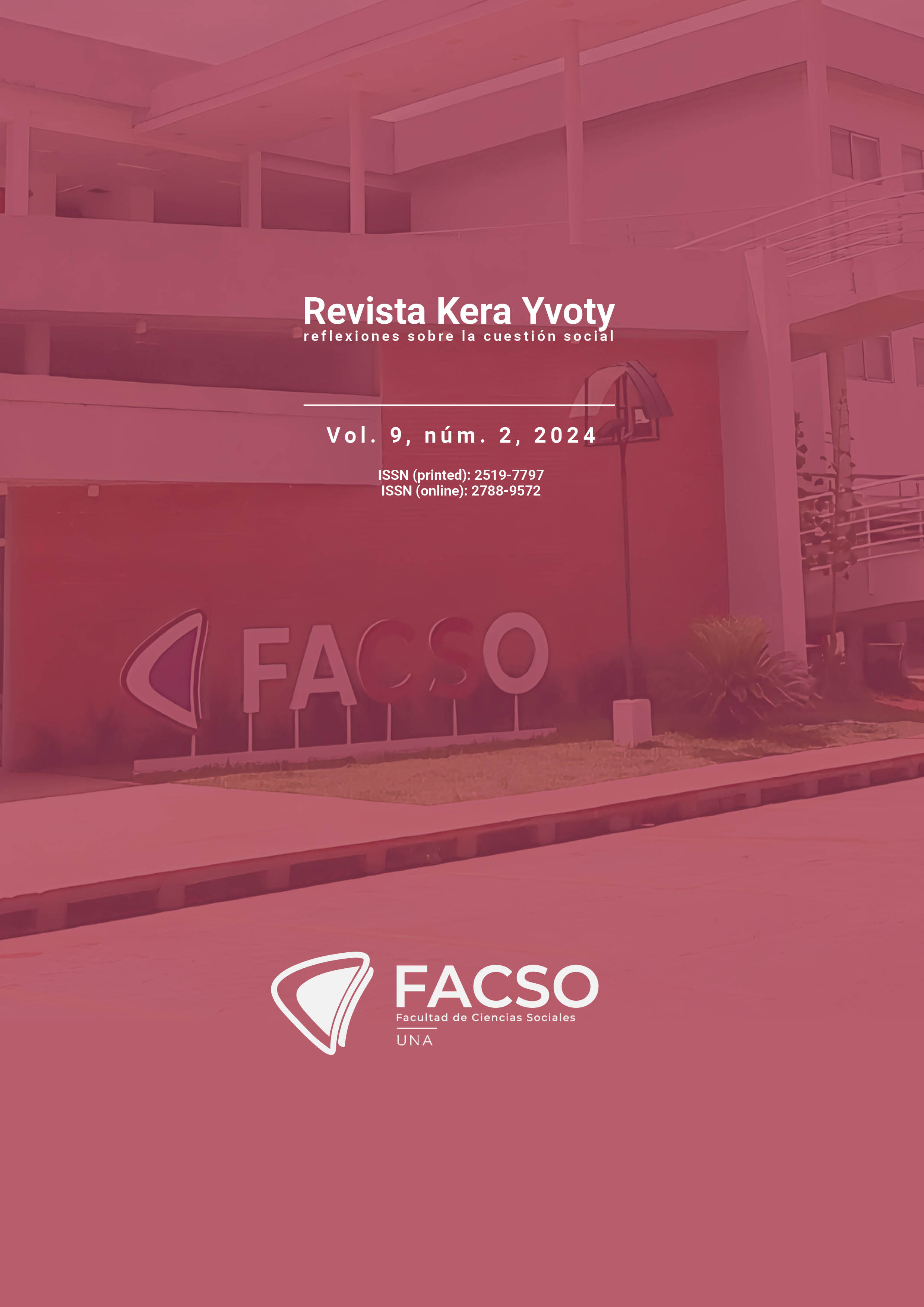Abstract
This study analyzes the influence of artificial intelligence (AI) on social science research in Paraguay during 2023, focusing on Paraguayan individuals conducting research in higher education institutions. A mixed methodology was employed that included a documentary review and a survey applied to 52 social science professionals. The sample covered diverse demographic groups, with a predominance of participants between 35-49 years of age, mostly women, with a master's degree (51.9%) and research experience of 1-5 years (40.4%). The results identify that AI brings significant advantages such as methodological innovation and efficiency in data analysis, but also poses ethical and comprehension challenges that require attention. Respondents recognize the importance of a solid background in AI and the need to integrate it responsibly, viewing it as a valuable tool but not as a substitute for human critical thinking. The study highlights the growing influence of AI in social research and emphasizes the importance of an ethical and reflective approach to its implementation.
References
Carrillo Cruz, C. E., Herrera Barragan, V. A., &; Cortes Serrato, J. N. (2023). Inteligencia Artificial para la escritura académica en investigación. Ciencia Latina Revista Científica Multidisciplinar, 7(4), 4604-4621. DOI: https://doi.org/10.37811/cl_rcm.v7i4.7304
Corvalán, J. (2018). Inteligencia artificial: retos, desafíos y oportunidades-Prometea: la primera inteligencia artificial de Latinoamérica al servicio de la Justicia. Revista de Investigações Constitucionais, 5, 295-316. https://doi.org/10.5380/rinc.v5i1.55334
Fundación para la Investigación Social Avanzada. (16 de 05 de 2023). Ventajas de la inteligencia artificial en la investigación social y de mercados. https://isdfundacion.org/2023/05/16/ventajas-de-la-inteligencia-artificial-en-la-investigacion-social-y-de-mercados/#:~:text=La%20IA%20puede%20ser%20utilizada,y%20la%20toma%20de%20decisiones.
González Arencibia, M., &; Martínez Cardero, D. (2020). Dilemas éticos en el escenario de la inteligencia artificial. Economía y Sociedad, 25(57), 93-109.
Hernández , J. (22 de 09 de 2022). Inteligencia artificial: qué aporta y qué cambia en el mundo del trabajo. https://blogs.iadb.org/trabajo/es/inteligencia-artificial-que-aporta-y-que-cambia-en-el-mundo-del-trabajo/
Instituto de Ingeniería del Conocimiento. (23 de octubre de 2023). La Inteligencia Artificial y las ciencias sociales. https://www.iic.uam.es/innovacion/inteligencia-artificial-y-ciencias-sociales/
Ocaña-Fernández. y., Valenzuela-Fernández, L. A., & Garro-Aburto, L. L. (2019). Inteligencia artificial y sus implicaciones en la educación superior. Propósitos y representaciones, 7(2), 536-568.
Olivo, D. (2019). La incorporación de la inteligencia artificial en el poder público. La política en el mundo inteligente. Revista Conjeturas Sociológicas, 36-75.
Padilla, R. (2019). La llegada de la inteligencia artificial a la educación. Revista de Investigación en Tecnologías de la Información: RITI, 7(14), 260-270.
Serrahima de Bedoya, Á. (2022). Avances y desafíos de la inteligencia artificial. Madrid: Universidad de Comillas.
Vargas Cordova, M. (17 de agosto de 2023). INCAE. Obtenido de Habilidades que la inteligencia artificial no puede reemplazar: https://www.incae.edu/es/blog/2023/08/17/habilidades-que-la-inteligencia-artificial-no-puede-reemplazar.html
Varona-Aramburu, D. (2023). Investigación en ciencias sociales, ante el reto de la inteligencia artificial. Puriq, 5, 1-2.

This work is licensed under a Creative Commons Attribution 4.0 International License.
Copyright (c) 2024 Angelina Trinidad-Da Silva, José María del Rosario Cañisá Núñez




